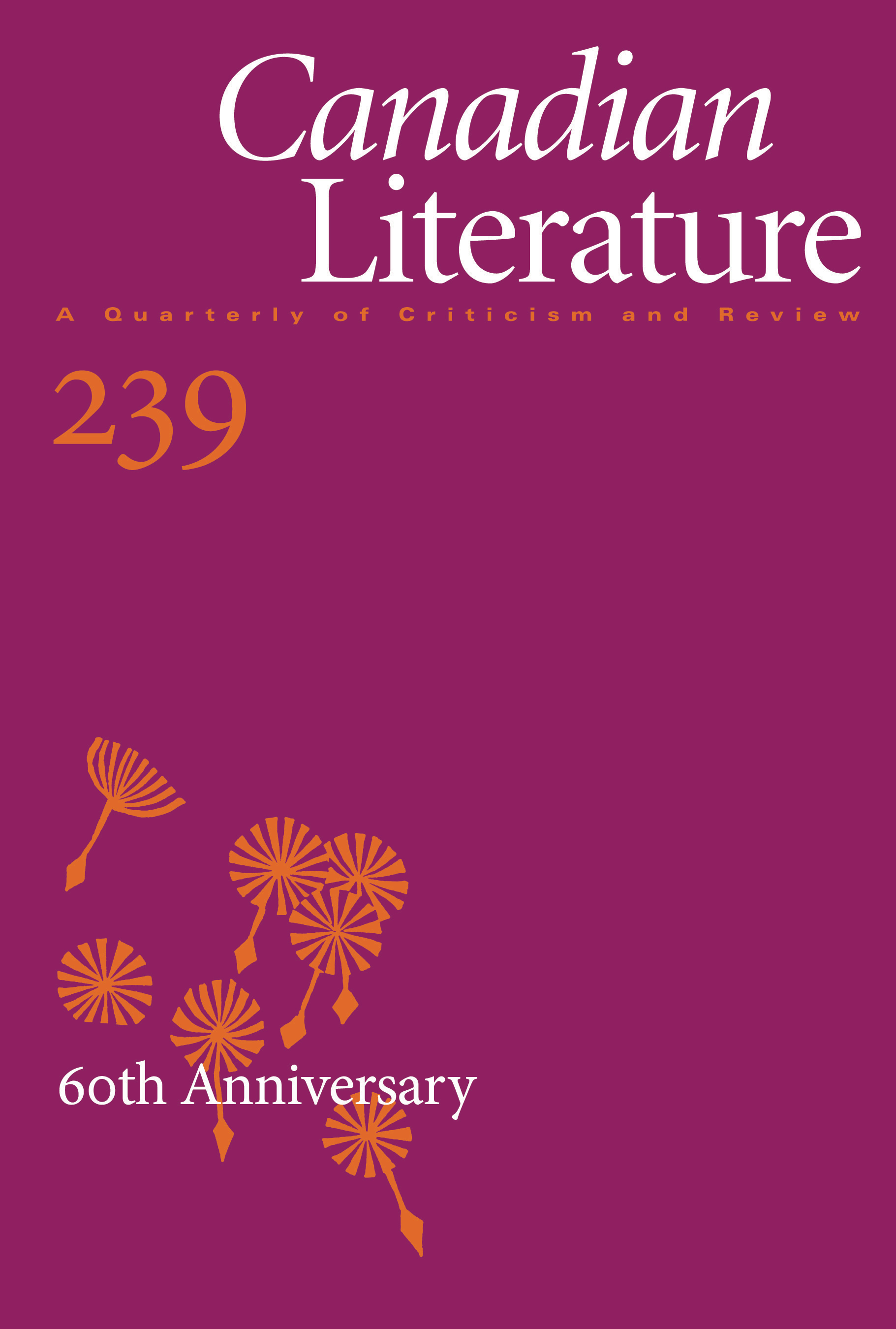“Your own guilty story”
Rethinking Care Relations through David Chariandy’s Soucouyant
DOI:
https://doi.org/10.14288/cl.v0i239.191363Abstract
Apocalyptic visions of an aging population rest on negative assumptions about the costs and effects of increasing numbers of people with dementia. Such discourse emphasizes a desire for cure and amplifies the costs of care while ignoring the broader cultural implications of dementia. Literary portrayals offer the opportunity to broaden the figurative landscape to raise questions about what it means for a population to age. Drawing on age studies, this contextualized close reading of David Chariandy’s Soucouyant offers another way to think about global aging, the implications of memory loss, and how care work affects relationships. The novel’s never named narrator concocts “guilty stories” that orient him to his mother’s dementia but do not adequately account for the care work his mother’s friend, Mrs. Christopher, has done over decades. Thus, the novel pertains to the political economy of aging by surfacing connections among care relations, cultural memory, and dementia.


